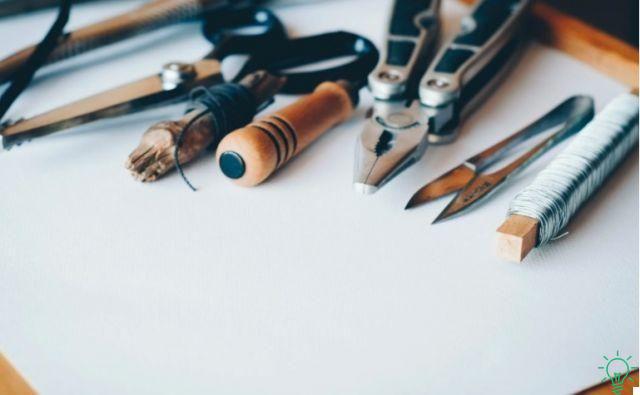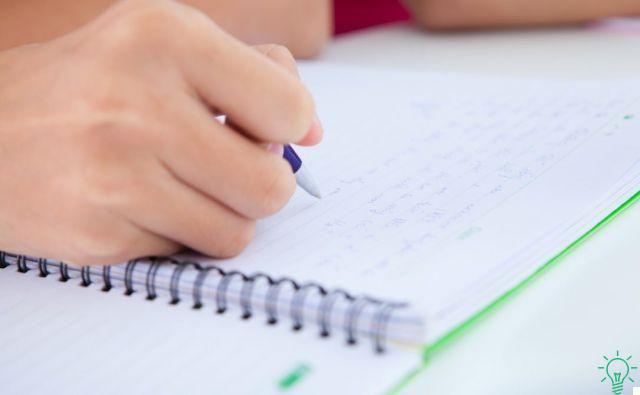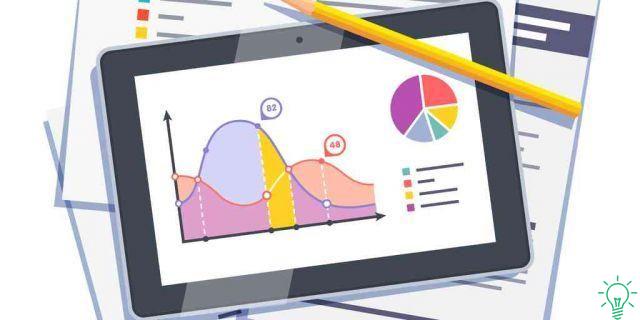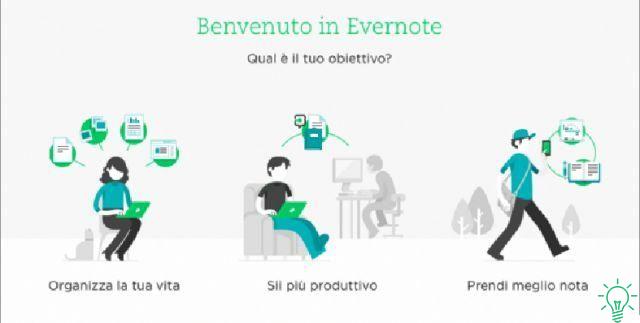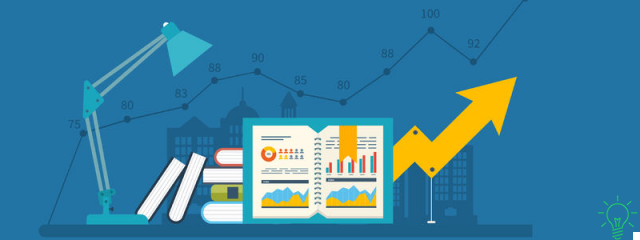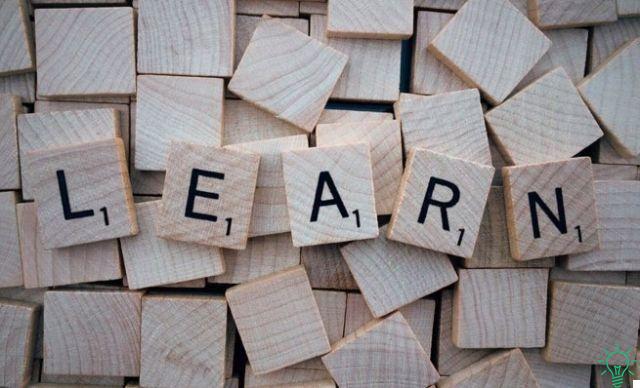
Under the name of "App for studying"Hundreds and hundreds of tools are now coming together that can, in theory, help a university or high school student in a thousand different ways.
Exactly, in theory ..
Because as always, when there is too much choice, you risk paradoxically:
- or not to choose at all, in this case going ahead with pen and paper without taking advantage of the great possibilities offered by technology
- or choosing the wrong tools, ending up frustrating yourself a little for the lack of results, and losing confidence in yourself
- or to choose "too much", finding yourself jumping from one tool to another, always looking for the latest news, using dozens of Apps but none of them really good
Now, I confess that, like most 40-year-olds, I am not a tech monster, and for my organization and studio I use 3 apps in all.
They are fine for me, but maybe they are a little bit for one modern university student.
Thankfully though, when it comes to technology to study, I also have my guru:, a medical student who really knows everything (or almost!) about "smart" tools for improve the study method, and who acts as a consultant for the more "technological" articles of the blog.
In today's article, he will therefore tell you what they are the best apps to study!
I asked him for 10, but in the end a few more came out.
Better this way, because it allowed me to group them by homogeneous thematic areas, and you will have the right choice, without having too much!
But now, the word is up to him….
“Today I will talk about some of the app for college students which can also be useful to high school students or to many workers and professionals.
I will only consider the Android and iOS operating systems because they cover about 99% of the smartphone market, but keep in mind that several of the app presented are also available for Windows.
In the meantime, however, let's try to circumscribe the field a little ...
App for students: a huge world
When I talked about technology for studying, I recommended tablets or 2-in-1 convertibles with Android or iOS as the ideal devices for studying because there are so many apps in their respective stores, and they are always increasing.
For this reason, the first thing you need to keep in mind is that alongside the "generic" apps for studying, it is easy to find very specific ones, intended for this or that exam in particular.
And whatever your need, you will almost certainly find some application that satisfies it.
For example, for my Anatomy exam, I had little understanding of the morphological descriptions on the brain; then I downloaded some 3D Neuroanatomy apps / atlases and finally everything was clearer to me.
So, remember: if you have to face a particularly hard exam, in my opinion it is always worth spending 5-10 minutes looking for some specific app in that subject; you could have the extra hand you need and save a lot of time.
Having said this, let's see what are the best "general" apps, that is, those that can support you in whatever your subject is.
For convenience I have divided them into sections, although obviously there may be some overlap between some of them:
App for concentration and relaxation
Organizing your time and making it pay off to the maximum is essential for an effective study; to do this it is important to be very focused, and if to eliminate internal distractions you can only need a sheet or any program to write notes on your phone, to eliminate external distractions there are apps that are right for you.
(PS If concentration is your weak point, or you don't really know what internal and / or external distractions are, I suggest you take a look here)
- Forest: stay focused (Android, iOS) is an app born with the intent to cure smartphone addiction, therefore suitable for a concentrated study session because it helps you to keep your focus for a set time. I recommend using it for the tomato technique; has a timer and tries to prevent you from checking the notifications on your smartphone with psychological blackmail: before starting the study, he makes you plant a virtual seed, and over time the plant grows into a tree. If you quit the application for any reason (e.g. replying to boyfriend / girlfriend's messages), the tree dies. Sad, right?
By growing many trees you earn points that you can spend, for example, to buy relaxing sounds to listen to to keep concentration high. - Tide: stay focused, be peaceful (Android, iOS) this application is similar to the previous one; your goal will be to not check any notifications until the countdown is over. There are some soothing sounds in addition to white noise to isolate you from the outside. It works well, keeps track of the minutes of concentration and shows you stats. This app can also be customized to function as a tomato timer.
- Relax Melodies Premium (Android, iOS) an indispensable application for me, which never fails in my devices, useful both for relaxing and concentrating. It has a very wide choice of repetitive and delicate sounds (many are sounds of nature: rain, sea waves, forest birds) but also white noises that help us isolate ourselves from the outside. I always use it when I go to the library and often also at home; when we have problems concentrating, we have to give our brain less stimulation, otherwise it will not be able to ignore everything around us. When we listen to something repetitive, our brain gets used to it and ignores the stimulus, seeing is believing!
- Brain focus (Android, iOS) is the classic “Pomodoro Timer”, simple, no frills, but also with settings to change and many statistics to monitor your performance.
Planning app: manage your time better
Why is planning your study or work so useful? Well, for example:
1) Dai priority to the most important things. Do you remember the Pareto principle? Anthony talked about it applying it to the studio, and he has to guide you to guarantee you incredible efficiency
2) You have the control of the situation if you have done a good planning and this gives you more security
3) You have created gods micro-objectives that motivate you, and you have created a routine that will improve your willpower
At least two, in my opinion, are the apps that are worth trying:
- myHomework Student Planner (Android, iOS) is meant more for high school students
- iStudiez Pro (Android, iOS) is the most popular app for scheduling, you will definitely be fine with it
App for memorizing and repeating: Flashcards
If you are passionate about study techniques, you will surely already know the Flashcard method, which allows you to memorize more easily thanks to delayed repetition. In this area, I have only one piece of advice to give you: try Anki, because it is unrivaled.
- Anki (Android, iOS) is undoubtedly the most famous and performing software, and by creating an account on Ankiweb you can synchronize your decks on any device (pc, smartphone, tablet). Considering that the iOS version is very expensive, you can also use the browser version of Ankiweb: you don't download any software and you pay nothing.
Other productivity apps:
- Camscanner (Android, iOS) is an app that is very easy to use but also extremely useful: take a picture and with a series of tools it turns it into a scan. You can also take pictures on the blackboard or the slides projected by the teacher. Are they a little crooked? It doesn't matter, selecting the edges of the slide, or of the page, CamScanner cuts it and changes perspective to give you a truly remarkable result; also use it to send notes to a friend, or a few pages of a book.
- Simplemind Pro+ (Android, iOS) is a great application for creating mind maps; if you use them, going digital has many advantages, for example greater readability (on a sheet of paper to let everything in, sometimes you have to write in a really too small font). I think it's more useful for professionals to brainstorm or present an idea or project; while if you have to prepare for an exam in a few days, creating a mind map would be just one more operation.
App for taking notes (and more)
Today the best apps for taking notes allow you, in addition to writing by hand, also to import PDFs, edit them, underline them, write on them. There is a lot of competition and there is no perfect app, but the ones you will see shortly should satisfy almost all possible needs of a student.
PS
Taking notes in the right way makes you memorize better and save time; if you don't know it, go now and find out how to apply the Cornell method.
- Squid (formerly Papyrus) is present for Android but not for iOS; GoodNotes instead it is only present for iOS. The main and equivalent alternative is Notability.
We will dwell a little more on these applications because if you decide to take notes by hand with the tablet, you will have to evaluate them.
In my opinion, Squid is the best application ever, but for a few months it has also been the damned most expensive one. To unlock all the content, you have to subscribe, and therefore in the long run it will cost you more than the alternatives on the iPad. Squid and GoodNotes have almost everything in common (and among the various templates you can use to write, there is also that of the Cornell Method I mentioned earlier): they allow you to synchronize your notes via cloud technology with any device, resize and change the color of your notes by hand, move them from one place to another, use pens, highlighters of infinite colors, record voice notes or the recordings of the teacher in class, put photos or images and write on them. The digital ink is made with a particular technology that does not make you lose quality by zooming, you can also enter notes and text with the keyboard, and you can convert what you have written by hand, into digital characters.
The possibility to import PDFs is very interesting, in fact to save on the monthly subscription, I downloaded the Cornell Method guide some time ago, I extracted the pages containing the template for taking notes and imported it into Squid; in this way you can also use this application to write music, or for example make graphics by importing pdf with the graph paper template.
Finally, Squid has the great advantage of being able to give you a page of infinite size, so if you don't feel like writing on an A4 or A5 size sheet, you can write a summary of an entire topic all in one page, so it will also be easier to divide the topics within your notebooks. - Xodo PDF reader & Editor (Android, iOS) was born multiplatform, but it gives its best only on Android, because on iOS it is poorly maintained and has not been updated for years. It is certainly one of the best programs for managing and annotating PDFs. What makes it special compared to the competition like Adobe Acrobat Reader? Fast synchronization and online collaboration. The first function allows you not to upload the entire file to Google Drive, but only the annotations (notes, underlines, highlights), so that if you have a large pdf (eg 500 Mb) you can save time and data connection; the second function allows you to underline and edit the pdf simultaneously with other people online.
Write notes: some examples of quick and easy apps
In this field the competition is really great; I recommend some of the most famous and popular apps, but nothing prevents you from using another one.
I recommend, however, to download at least one: you can use it to create a "to-do list" and apply the "7-minute technique to become a super student" digitally.
If you can't concentrate, you can also write thoughts that are bothering you with these apps and thus eliminate internal distractions. However, here are the most popular apps for noting your day:
- Evernote (Android, iOS)
- OneNote (Android, iOS)
- SimpleNote (Android, iOS)
- Google Keep (Android, iOS) is my favorite, light, practical, essential and functional. You can insert collaborators, labels, synchronize with Google drive, insert reminders; you can also dictate and Google Keep will faithfully write what you said.
Quick reading app
Have you ever heard of the tachistoscope? It is a tool that is 100 years old, and which was used to increase the speed of visual recognition.
Today's fast reading apps all start from the concept of the old tachistoscope, obviously with a notable increase in functionality:
- Programs for Android: Balto Speed Reading, SpeedRead with Spritz, Spritz Fast Reading Lite, Spritz Fast Reading 2k words, ReadMe! (Spritz & BeeLine).
With these applications, you are presented one word at a time quickly, you are forced to be focused and strive to increase your reading speed; Compared to other similar programs, those equipped with Spritz technology allow you to read even more easily at high speeds. - Programs for iOS: ReadMe! (Spritz & BeeLine), Flash Reader, Spreeder
Conclusions: are apps for studying really useful?
And how if they are needed!
You manage the study material better, you organize your time in a scientific way, you get bored less, you relax more….
The only real reason why some still don't use apps to study is that they, like anything else, have a learning curve, sometimes not very fast!
That is, before you get to use them efficiently you have to invest some time to learn how they work. And you have to get out of your comfort zone.
In short, we are always there: often people do not improve their study method because to do so…. must study!
:)
A greeting







